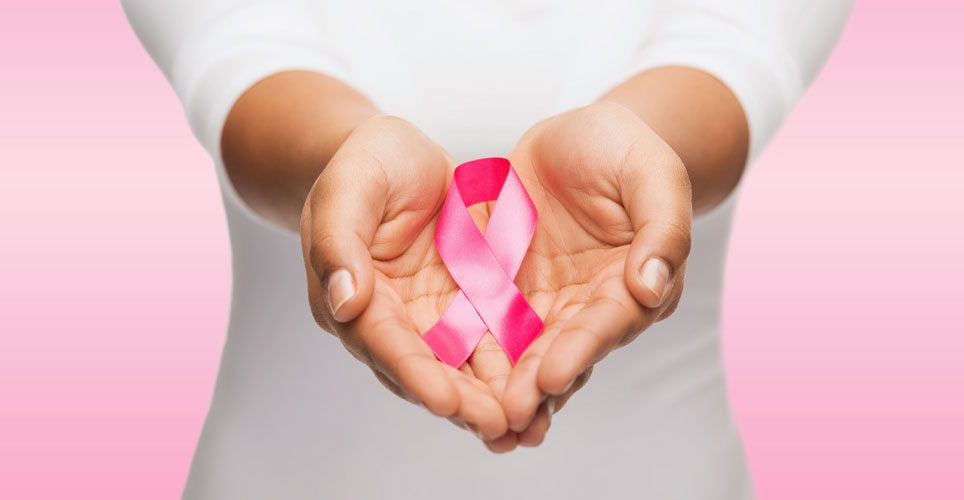
Bright pink isn’t the color most associate with fall, but you’ll see plenty of it this month.
The pink ribbons of October are your reminder to talk to your doctor about this formidable disease. The discussion is for men and women alike.
What We Know
Most have heard this statistic: One in eight U.S. women will develop breast cancer during her lifetime. But this isn’t a women’s-only disease; 2,650 men will be diagnosed with invasive breast cancer this year, with 530 deaths expected.
Early detection is crucial to proper diagnosis and treatment. Breast cancer can be contained to a specific area or spread to other parts of the body. The disease also has different variants that can be triggered by your own DNA. Treatments differ depending on the type of cancer, so the earlier the diagnosis, the better.
All of U-M’s health plans cover screening mammograms with no member copay.
Breast Cancer in Men
Although it’s rare for a man to develop breast cancer, knowing your family history is crucial. Risk factors for men include genetics, previous hormone and radiation treatments, and liver disease.
What’s New
For decades, women ages 40 and older were advised to have annual screening mammograms as part of their preventive checkups. Guidelines have changed in recent years, with recommendations now based on age and risk factors.
Experts also have revised recommendations about breast self-exams. However, women at higher risk are still encouraged to perform self-checks regularly. And if you experience unusual symptoms, such as discharge, sudden growths, warmth or skin changes, call your family doctor immediately.
COVID-19 Vaccine and Mammograms
If you received your COVID-19 vaccination recently, be mindful that the body's immune response to the vaccine may cause temporarily enlarged lymph nodes that can result in a false positive mammogram screening. It's best to schedule your screening mammogram four-to-six weeks after your last COVID-19 vaccination. Talk to your family physician if you have additional questions.
MHealthy Can Help
MHealthy, in partnership with the U-M Rogel Cancer Center, has compiled a collection of cancer prevention resources to help you determine when you should have your first mammogram, what to expect during a screening, what to know about male breast cancer, and more.
Breast Cancer Awareness Events
Breast cancer awareness events take place throughout October to heighten awareness, raise funds, and educate about innovations in detection and treatment. View this resource to find a Komen-affiliated event near you.
